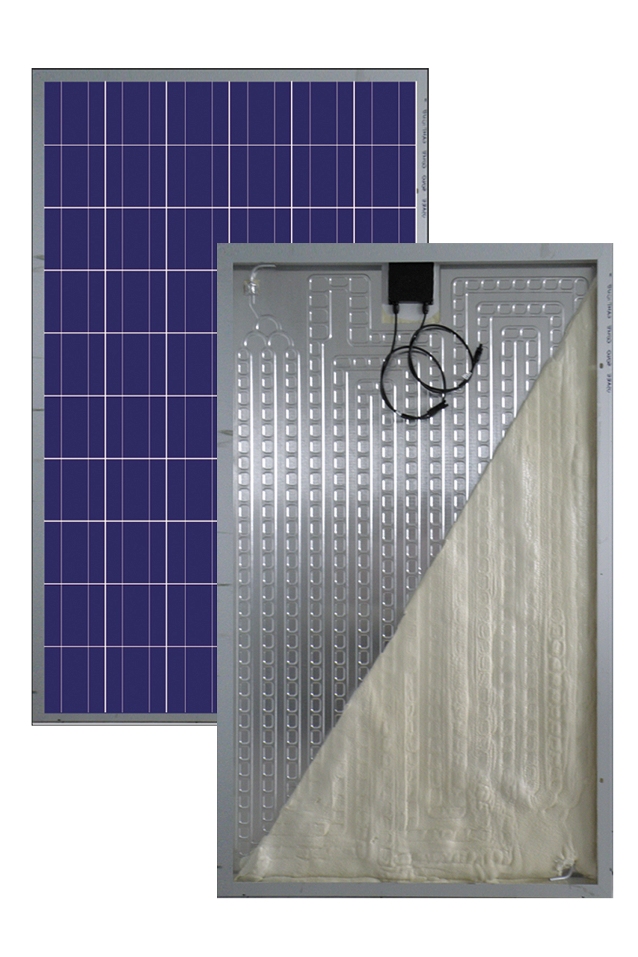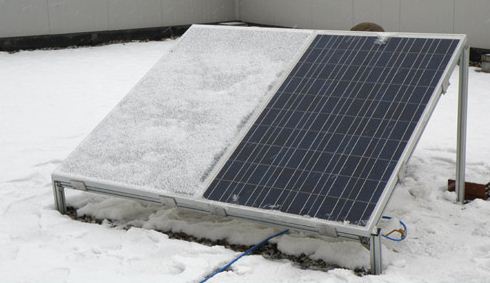Hybrid Photovoltaic Systems PV/Thermal
Combined thermal and electrical energy !
In conventional photovoltaic systems, a small percentage of the solar energy absorbed by PV cells is converted into electricity. The highest percentage of it is converted into heat which is lost to the environment and contributes to the temperature of PV panels to increase especially during the summer and therefore to the decline of their electrical efficiency and the acceleration of the aging process.
The average rate conversion of solar energy into electricity in conventional PV panels is 13.5%, depending on the manufacturer, while the rest 86.5% is thermal energy which is lost to the environment.
Our hybrid photovoltaic (PV / Thermal) systems have the ability to collect the "lost" heat from the PV cells and provide us at the same time with both electrical and thermal energy. The collection of heat from the PV cells is achieved with an aluminum heat exchanger, which is fitted on the back of the PV panel and conveys the heat through a closed circuit fluid (water -glycol) to the installations that we want to heat (Boiler of domestic hot water, heating assistance, swimming pool heating) while at the same time cooling the PV cells, and keeping highly the electrical efficiency.
The electrical efficiency of PVTs is 13.5%, the thermal efficiency is 35.5% and the total efficiency is 49% compared with 13.5% of conventional PV systems.
PV/T systems are suitable for houses and commercial buildings (hotels, hospitals, sports centers etc.) presented with the following advantages:
• Increase of annual electrical production because of the operation of the PV panels at a low temperature.
• Hot water produced as a byproduct may be used for domestic hot water, swimming pool heating and heating assistance.
• Better use of the available area of installation and uniformity, instead of using separate devices (PV panels for electricity production and solar collectors for hot water production) as it is all done by one system.
• Significant reduction of aging process of PV panels due to the prolonged operation at high temperatures.
![]() PVT HNRG technical specifications
PVT HNRG technical specifications



